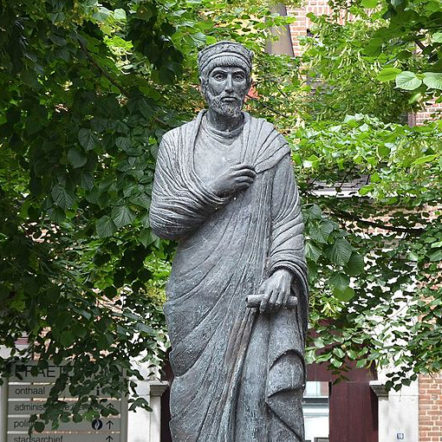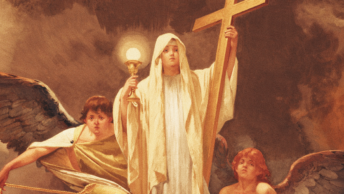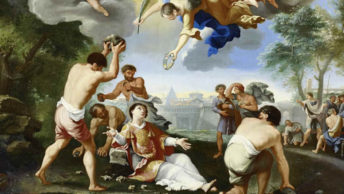I love the story of Flavius Claudius Julianus. He was a Roman emperor who died in 363 A.D. He also went by another moniker, Julian the Apostate. He holds the distinction of being the last non-Christian emperor of Rome.
He was called the “apostate” because he was raised as a Christian. When he became emperor, he abandoned Christianity and undertook a campaign to reestablish the cult of the Roman Gods. Doing so, he thought, was a means to unite the empire.
What I really like, however, about his story is a complaint that legend tells us he had lodged against the Christian community. “Those Christians”, he said, “Take better care of Romans who are in need than we do. They not only take care of their own, but they care for any Roman, Christian or not.” This, he felt, was giving the official Roman government a bad reputation.
The popular Catholic writer, George Weigel, has commented that we are now living in “apostolic” times. That is, we are in a time where Christian values are not learned by living in our society. It is like the times of the apostles, and “The Way” was being persecuted for challenging the morals, ethics, and practices of the Roman culture. We are living in apostolic times. We cannot expect that Christian values will be passed onto our children simply because they are lived and practiced in society.
This is one of the reasons I love the story of Julian the apostate. He was aware that it was Christians reaching out in charity to any in need which, in large part, was responsible for converting an empire. Yes, it took a few centuries, but the notion of “They will know we are Christians by our love” changed the world. It is a servant love, the agape love, the love of the good Samaritan and following the command of Jesus to love your enemy that won the day. I believe it will be Christian charity that will, once again, convert our culture. I am an optimist. I may not see it in my lifetime, but I believe it will happen.
On May 1, 2020, Fox News reporter, Caleb Parke, wrote a story about Pope Francis giving money to a group of transgender prostitutes in Rome. Due to the Coronavirus disease, these men found themselves without customers. Pope Francis authorized the distribution of alms to help them buy food. The conservative religious media went crazy with accusations, claiming this act of charity as proof that Pope Francis was, if nothing else, the anti-Christ. My response to some of these statements garnered much backlash. My response was “I do not want to belong to a Church that would have refused aid to a hungry person.”
I truly wish these men were not making a living as transgender prostitutes. I recently attended a presentation on human trafficking. The presenter stated that in his work on the streets of Detroit, Michigan, ministering to over 3,000 prostitutes, he has come to believe no one chooses to be a prostitute. It is often a lifestyle forced upon them or one of last-resort desperation. I am not in favor of prostitution as an industry and view the act of hiring a prostitute as an extreme act of violence and degradation of the human dignity of the sex worker.
The challenge, I believe, for those who were so quick to criticize the Pope for offering aid, is they cannot separate the persons created in the image and likeness of God from the circumstance of their being workers in the sex trade. Jesus never said to only reach out in charity to those who think like you. He said to love your enemy. In Matthew, Chapter 25, Jesus famously states that there are those who call upon his name but will be left out of the Kingdom of Heaven for not feeding the hungry.
Therein lies my hope for the World. Like Pope Francis, we are to reach out in charity and care for those in need, even if they are not living the Christian life. Will the witness of our lives, like those in apostolic times, be a means of conversion? Will our living a life of faith-filled holiness and charity radiate the peace of Christ, which those seeking, can follow to salvation through Jesus and His Church? Can we be followers of “The Way” and take care of our modern-day Romans better than Rome?








